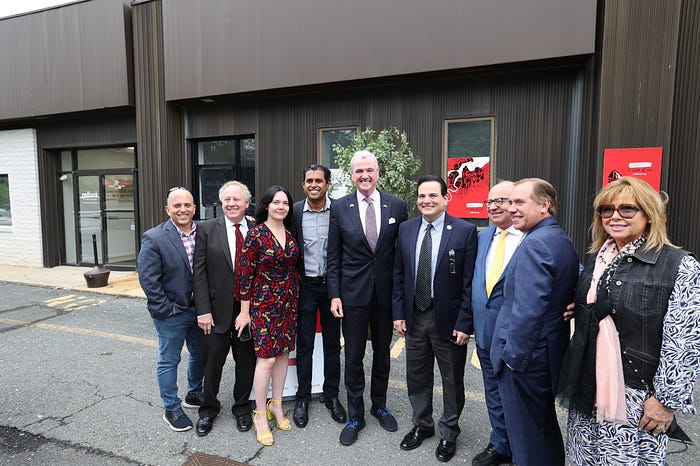Improve workplace equity, reduce carbon footprints, bridge the pay gap, and strengthen communities: Teleworking?

Across the United States and around the world, the smart money is tirelessly trying to harness the many changes still being wrought by COVID-19 to serve the public good.
Recent advancements in Telemedicine are one excellent example.
The concept of universal healthcare is very appealing: The reality in the U.S. is a severe shortage of doctors, nurses, and other qualified medical professionals. If every American had health insurance tomorrow, there wouldn’t be adequate medical staff to treat them.
Telemedicine, expanded during the COVID19 crisis, has offered one way to bridge that particular gap.
With telemedicine, medical professionals have the opportunity to treat more patients. Telemedicine also helps mitigate a major barrier that prevents many people from receiving the vital health care services they need because they live too far away, have accessibility challenges, or lack reliable transportation.
A rising tide of telework opportunities could prove as big a boon to other industries, companies and organizations as telemedicine expansion is likely to be for the healthcare industry.
Under the leadership of Governor Phil Murphy, the beautiful state of New Jersey, which I have been proud to call my home for many years now, is leading the way with an extremely innovative pilot telework program.
The Model Telework Pilot Program will offer more flexibility for State government agencies and staff members, requiring three in-office days per week for qualified employees with telework-compatible job responsibilities.
During the height of COVID-19 shut-downs, community COVID19 outbreaks kept State agency workers from congregating in their usual office spaces. The employees of state agencies in New Jersey still had important jobs to do, however. Even during a pandemic- especially during a pandemic- the government must continue to function.
State employees, their managers, and key elected officials at every level rose to the occasion magnificently.
“During the height of the pandemic, we witnessed State employees successfully continue to deliver critical State and public services while teleworking,” said Civil Service Commission CEO, Deirdré Webster Cobb Esq., who approved the teleworking pilot plan. “As we witness changes around the world in the landscape of how we work, it is important for us to adapt in order to attract and retain qualified State workers.”
The need for a more cohesive relationship between work and family life is something elected officials in New Jersey understand very well. They have families themselves.
Finding an ideal balance between productive time at work and quality time spent with family and friends pursuing enjoyable activities and enriching experiences is something executives and employees in every industry struggle with throughout their careers.
Telework may be able to help.
“Telework will accelerate the modernization of New Jersey’s State government to reflect the evolving workplace landscape,” said New Jersey Governor Phil Murphy of the new program. “Our union partners have been integral to the creation of this telework program. Through collaboration, we can continue to build a workforce equipped to handle the demands of the modern workplace.”
Governor Murphy is right: The modern workplace is changing.
Requiring a return to the strict pre-COVID19 principles of occupying an office cubicle everyday would only serve to reinforce the notion of an office-life culture completely detached from familial life. It also severely restricts the pool from which companies can draw qualified job candidates.
Integrating family life with office culture via a more flexible workweek with telework opportunities would also help promote equality and bridge the pay gap by normalizing motherhood in the workplace.
When is a good time to take a year off from a promising career to have a baby? The unfortunate answer is the same today as it was fifty-years ago: Never.
A workplace where maternity, paternity, motherhood, fatherhood and extended family life was normalized and better integrated would be able to draw from a vast treasure trove of brilliant job candidates at the peak of their productivity.
Too many parents have to sacrifice their career prospects to fulfill responsibilities in the home, caring for family members from newborn infants to elderly family members.
Any company, state agency or organization able to access that particular ocean of untapped potential is sitting on a gold mine. Many parents skillfully managing a brood of 2–12 year olds would make unmatched captains of industry, corporate consultants, or Supreme Court Justices.
The reason is simple: Good parents often make good employees. And vice versa. Most good parents and good employees have a hard time managing both sometimes.
After experiencing something like COVID19- which has so radically impacted our lives, communities and institutions for so long- perhaps asking when things will finally go back to normal is the wrong question.
The world has changed so much. We can’t turn back the clock on COVID19; but we can make the best of what we’ve learned during a very difficult time.
Post-traumatic stress is devastating. But there is sometimes a flip-side to post-traumatic stress: Post-traumatic growth.
After grappling with some of the most trying and devastating times in our lives, somehow, our society is still standing. We are still helping one another- though not as often as we probably should. We are still finding ways to contribute, still creating, still ready to do what we humans do best: Innovate our way out of a crisis.
Right now, we need to reduce our carbon footprints, strengthen communities and families, improve equity and diversity, and invest in education.
Could something as simple as telework really be a solution to some of our most intractable and persistent social problems?
It may be a surprise, but great windfalls often are.
(contributing writer, Brooke Bell)